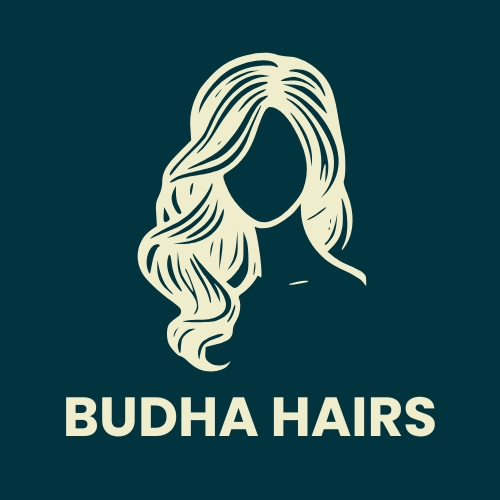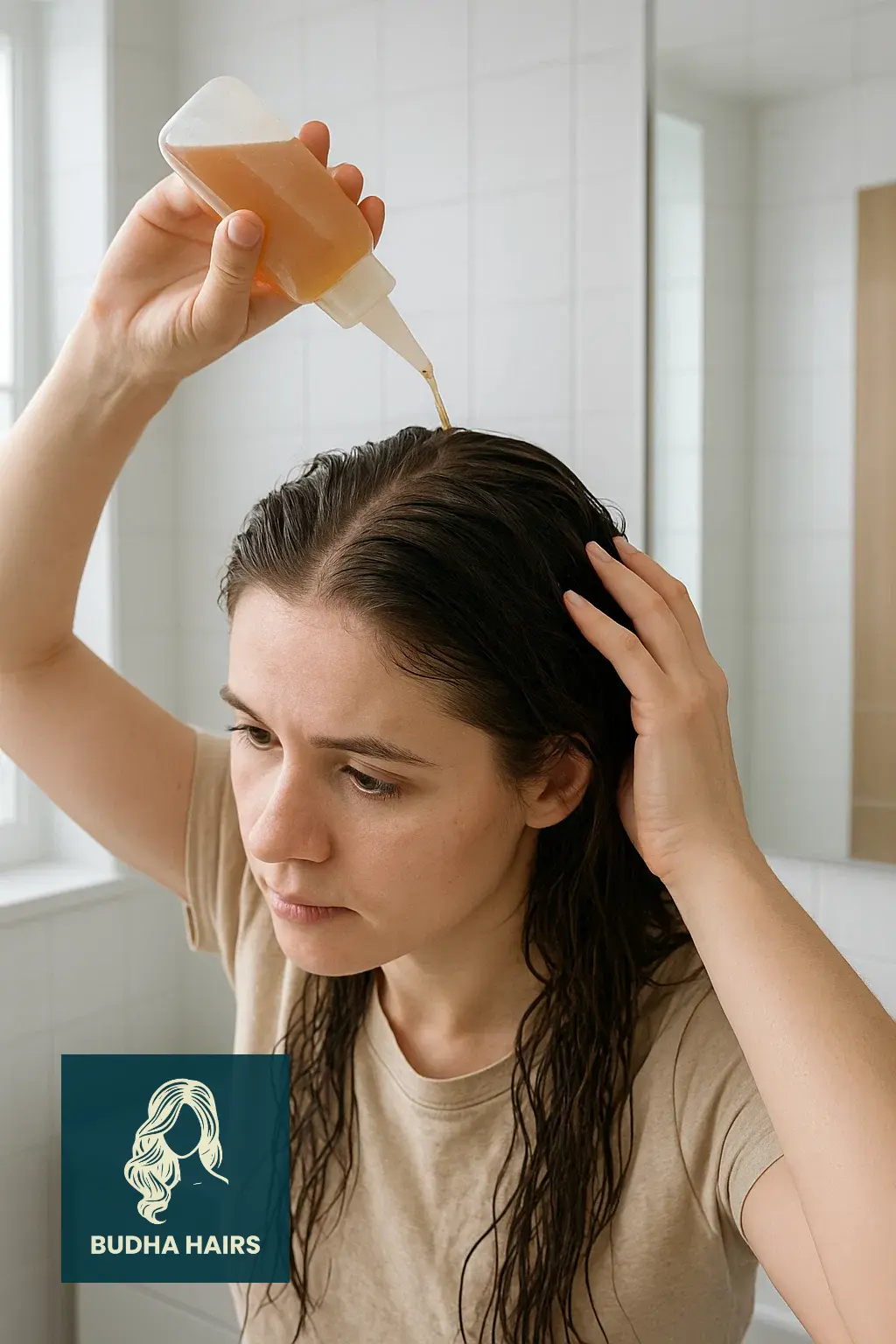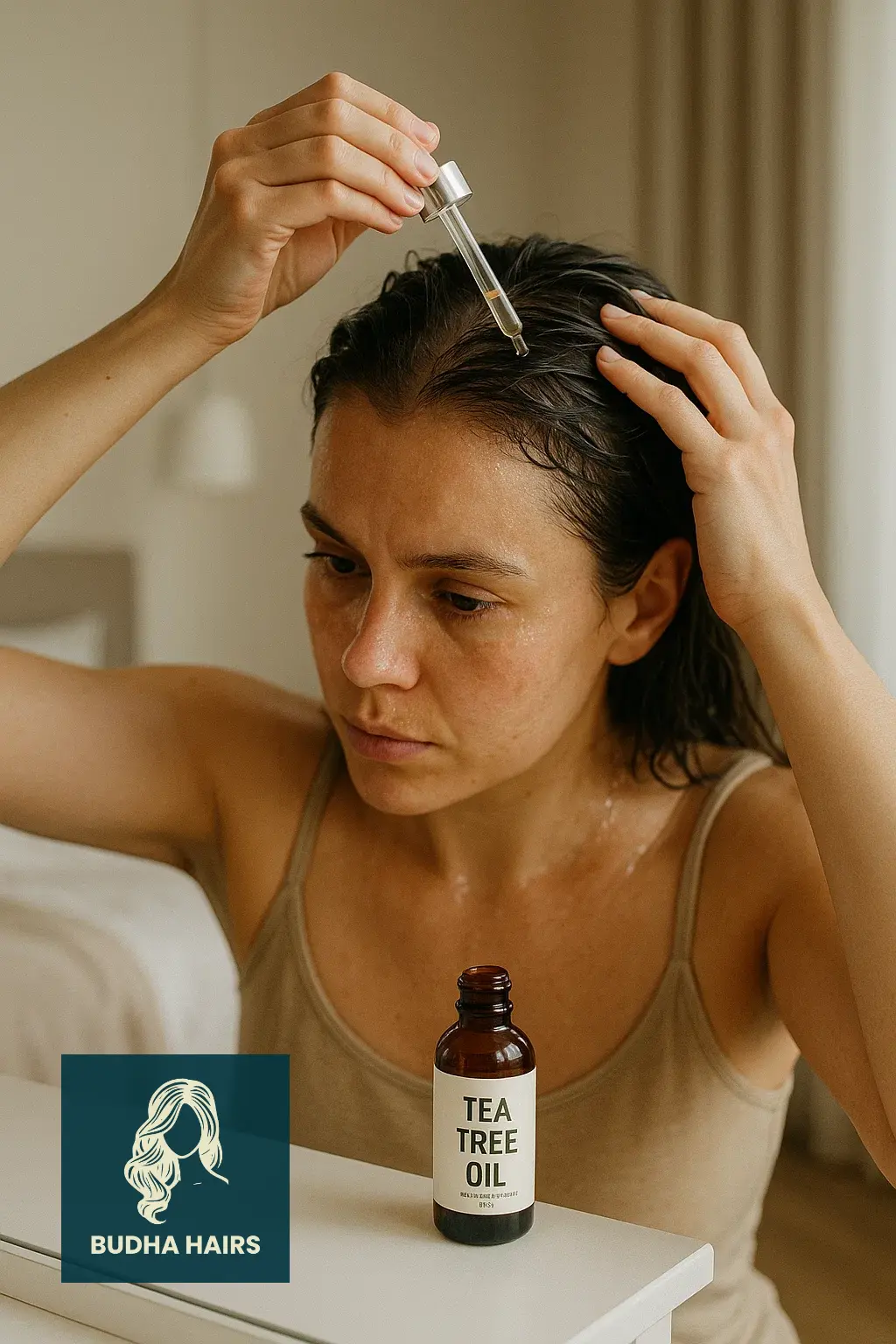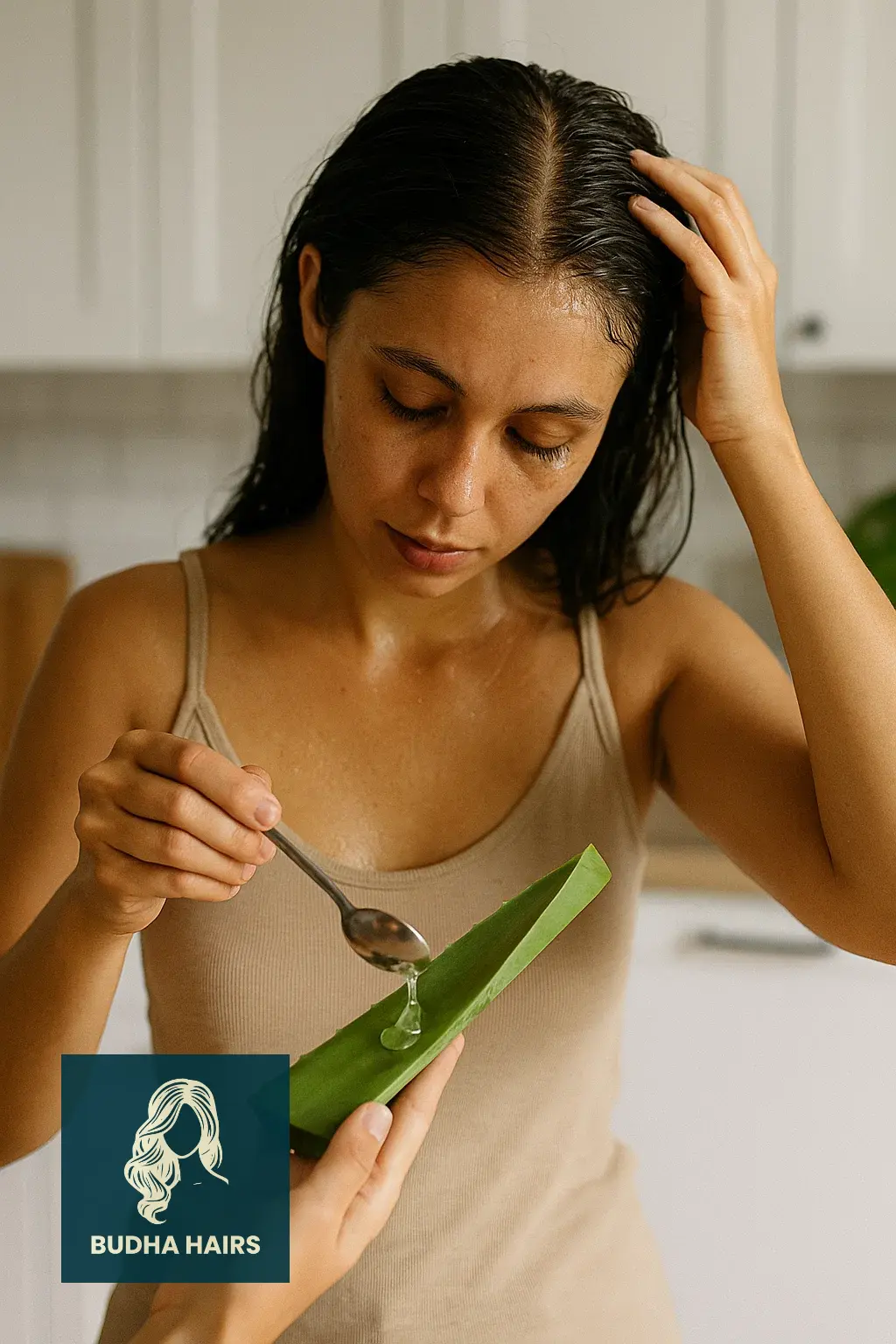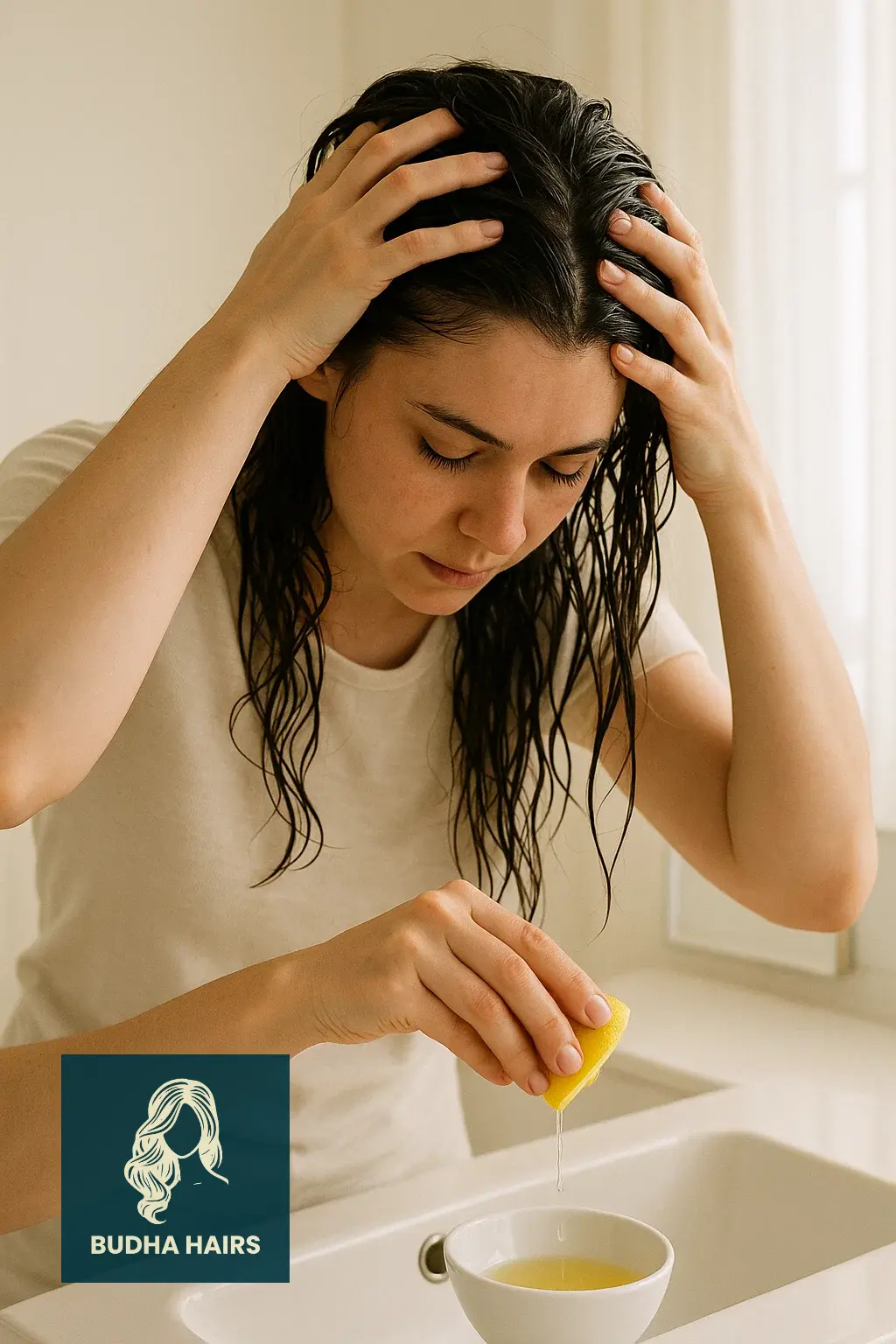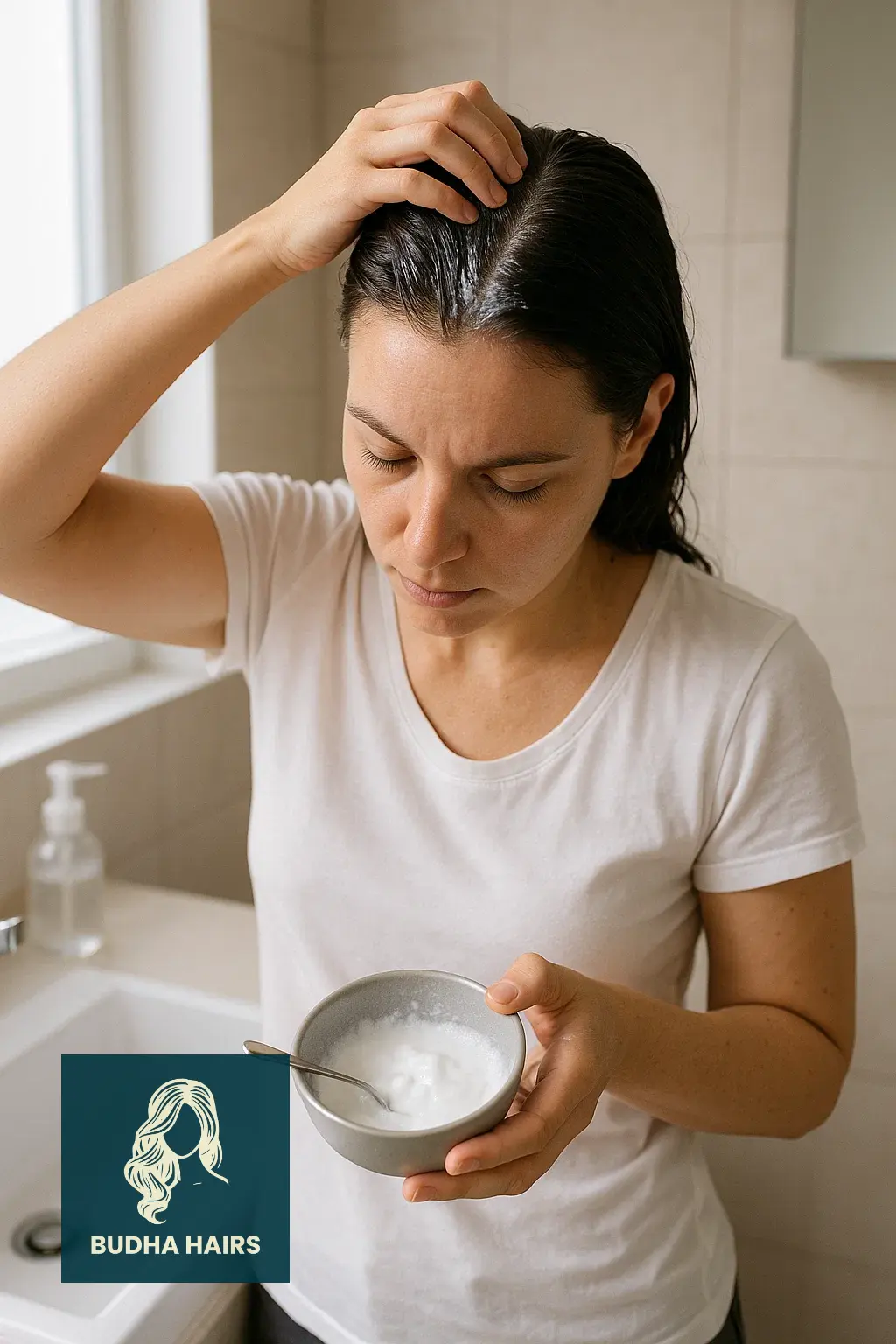If you’re struggling with excessive scalp oil and looking for a safe, gentle solution, turning to natural remedies for oily scalp is a smart move. These time-tested ingredients help regulate sebum production without harsh chemicals, making them ideal for maintaining scalp health. In this guide, we’ll walk you through some of the most effective natural ways to manage an oily scalp and prevent buildup, irritation, and greasiness.
Natural Remedies for Oily Scalp
Let us explore the natural remedies in the following section
Balance Scalp Oil with an Apple Cider Vinegar Rinse
Apple cider vinegar is one of the top natural remedies for oily scalp thanks to its ability to restore the scalp’s pH balance and reduce oil production. Mix 2 tablespoons of raw apple cider vinegar with one cup of water and use it as a final rinse after shampooing. Not only does it cleanse excess oil, but it also soothes itching and removes product buildup.
Tea Tree Oil to Reduce Scalp Grease
Known for its antibacterial and antifungal properties, tea tree oil is a fantastic natural solution to oily scalp issues. Add a few drops of tea tree oil to your regular shampoo or dilute it with a carrier oil and massage into your scalp. It helps clear clogged pores and regulates oil without over-drying.
If you’re exploring ways to naturally manage hair concerns, you might also be interested in these Protective Hairstyles for Straight Hair that help reduce manipulation and scalp buildup
Aloe Vera Gel to Calm and Detoxify
Aloe vera isn’t just for sunburns. It’s a powerful natural remedy for oily scalp. Apply fresh aloe vera gel directly to your scalp and leave it on for 15–20 minutes before rinsing. Its enzymes help cleanse oil and soothe inflammation, keeping your scalp refreshed and balanced.
Clarify and Cleanse with Lemon Juice
Lemon juice is naturally astringent and can cut through oil quickly. Mix the juice of half a lemon with water and apply it to your scalp for a few minutes before rinsing. This remedy not only controls sebum but also leaves a fresh, clean scent.
Green Tea Scalp Infusion
Rich in antioxidants and known to reduce inflammation, green tea makes an excellent scalp rinse. Brew a strong cup of green tea, let it cool, and pour it over your scalp after shampooing. Green tea works to reduce excess oil and promote healthier follicles.
Baking Soda to Absorb Excess Sebum
Baking soda acts as a natural exfoliant and oil absorber. Create a paste using baking soda and water, and gently scrub your scalp in the shower. This method should be used sparingly—just once a week—to avoid over-drying, but it’s one of the most effective natural remedies for oily scalp when used correctly.
Soothe and Control with Witch Hazel Spray
Witch hazel is a gentle astringent that can help reduce oil without irritating your scalp. Mix witch hazel with a bit of water in a spray bottle and spritz onto your scalp daily. It’s ideal for on-the-go scalp refreshment and controls greasiness throughout the day.
How Often Should You Use Natural Oily Scalp Remedies?
For most people, applying natural remedies for oily scalp 2–3 times per week is effective. Overuse can strip the scalp and actually stimulate more oil production. Monitor your scalp’s response and adjust based on how greasy or dry it feels.
How Your Diet Affects Scalp Oil Production
What you eat plays a crucial role in oil production. Diets high in refined carbs, sugar, and dairy may increase oiliness. Focus on consuming more omega-3s, leafy greens, and zinc-rich foods to keep oil levels in check.
Simple Lifestyle Changes to Improve Scalp Health
Making a few lifestyle changes can also support a healthier scalp:
- Avoid overwashing your hair, as it can lead to rebound oil production.
- Keep stress levels low—stress can trigger more sebum.
- Use non-comedogenic products that won’t clog scalp pores.
- Avoid touching your hair frequently, as it transfers oils from your hands.
“Managing oil production can also tie into broader styling choices. For instance, these Peekaboo Highlights for Black Women are a stylish way to refresh your look while working with your hair’s natural texture.”
How to Maintain a Balanced Scalp Naturally
Maintaining a healthy balance involves a routine that supports hydration and regulates oil. In addition to using natural remedies for oily scalp, try to:
- Use a gentle shampoo free from sulfates.
- Rinse thoroughly to avoid buildup.
- Alternate between detoxifying and hydrating treatments.
FAQ‘s
Conclusion
Finding the right natural remedies for oily scalp can completely transform your hair care routine. Whether you’re using aloe vera, tea tree oil, or lemon juice, the goal is to balance sebum production without causing dryness or irritation. Combine these treatments with smart lifestyle and diet choices to enjoy a healthier, fresher scalp—naturally.
Along with these natural treatments, proper styling can complement scalp care. You can explore styles like Bangs Covering One Eye for low-maintenance, elegant looks that don’t overwhelm the scalp.”

I’m Budha Styler, a hair enthusiast who loves creating beautiful, confidence-boosting looks that feel true to who you are. I’m passionate about exploring new trends, techniques, and textures, and I enjoy turning that knowledge into simple, inspiring ideas anyone can try. Through my work, I hope to help you express your unique style, feel amazing in your own hair, and discover everyday looks that make you shine.
